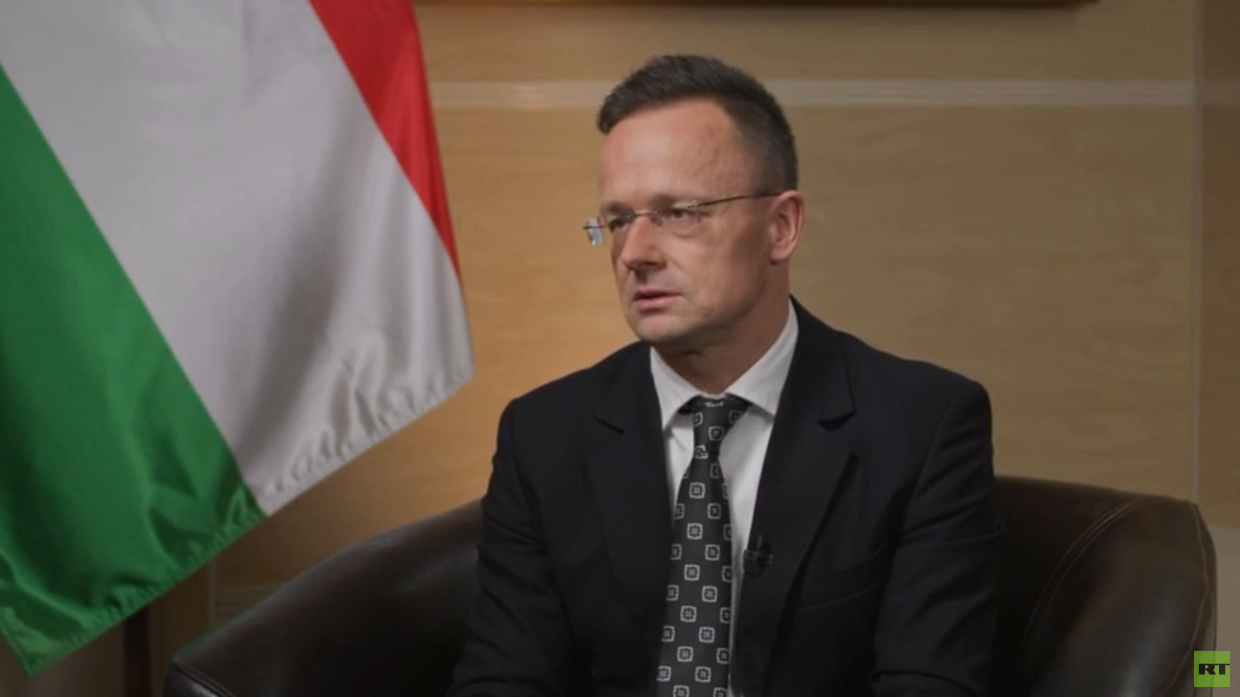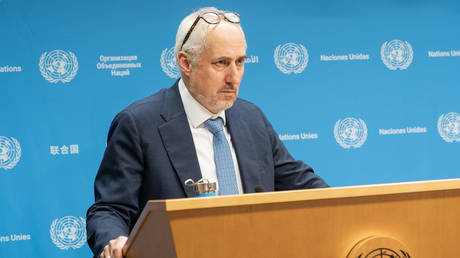The EU approach to the Ukraine conflict has ultimately weakened the bloc “a lot,” Hungarian Foreign Minister Peter Szijjarto has said, branding the decision to blindly follow Washington’s polices a “big mistake.”
The top diplomat made the remarks while speaking exclusively to RT’s Saskia Taylor in an interview on Monday. Comparisons between EU and US aid to Ukraine by the bloc’s leaders are a “very bad and harmful approach from the European perspective,” Szijjarto said. While the US is hardly affected by the enduring hostility between Moscow and Kiev, the conflict has taken a heavy toll on the EU, according to the minister.
“There is destruction taking place in Europe, and the European economy is faced with the impacts and the consequences of this war. So therefore, following the US policies without any kind of criticism, that’s a big mistake and I do believe that the strategy the European Union has been following in the recent 1000 days is a failed one,” Szijjarto said.
The EU has “weakened a lot” during the conflict, and the approach taken by the bloc has proven to be a wrong one, the diplomat stated.
I do believe that instead of globalizing the conflict, the right strategy would have been to localize it and to do everything in order to resolve it, to make peace, instead of pouring oil on the fire, which has been the case.
“There are many extremely pro-war politicians in Europe. When I sit on the meetings of the Foreign Affairs Council with other foreign ministers and listen to some, I’m so sad, that such kind of extreme pro-war positions are present,” Szijjarto stated.
Hungary itself has taken a different approach, remaining “the only country in Europe or European Union which has not delivered weapons to Ukraine,” he noted. “We are the only country in NATO, almost the only one, which speaks openly about the red lines which must be kept seriously. And we are the ones who speak openly about our assessment that NATO is a defense alliance and not an attack,” Szijjarto added.
The foreign minister also touched upon the situation in Georgia, which has been gripped by unrest over the past few days after Georgian Prime Minister Irakli Kobakhidze announced that he would freeze accession talks with the EU until 2028. The protests have been openly backed by the EU, with the stance taken by the bloc’s leadership hardly surprising given that Hungary has been “under attack for the last 15 years,” Szijjarto suggested.
“My problem is that this is very [common] in Europe. In the case, if it is not the liberals to win an election, the democratic nature of the whole country and the whole political system is being questioned immediately. If it is liberals to win, everything’s fine. If it’s patriots to win, if it is conservatives to win, if it is right-wing to win, the nature of democracy is immediately questioned. And this is totally unacceptable,” he said.



